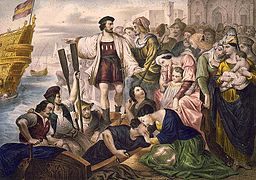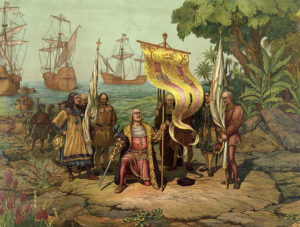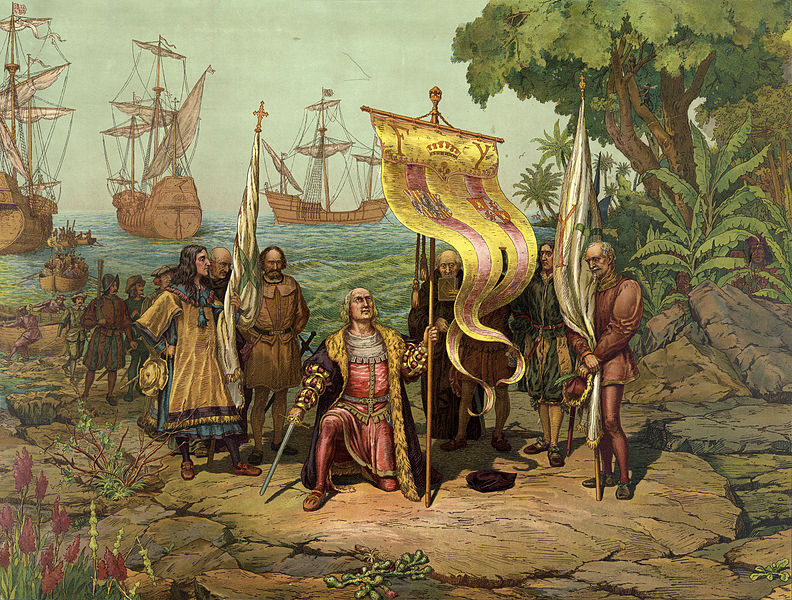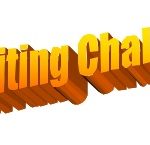Reflecting The Spirit Of Columbus
 In the US today we are celebrating Columbus Day (the actual date of the holiday is October 10) in honor of Christopher Columbus who has been credited with discovering America. Oddly, the two western continents are named after Amerigo Vespucci, not the Norse explorer Leif Ericson, who founded the first European settlement in the “new world,” nor Columbus.
In the US today we are celebrating Columbus Day (the actual date of the holiday is October 10) in honor of Christopher Columbus who has been credited with discovering America. Oddly, the two western continents are named after Amerigo Vespucci, not the Norse explorer Leif Ericson, who founded the first European settlement in the “new world,” nor Columbus.
Columbus, while not first, and not even aware he’d found a “new” land, deserves a lot of credit for calling attention to the Americas, essentially opening up colonization in places that had previously been unknown. As I thought about his voyage of exploration, I realized there were some similarities between him and Abraham in the Bible. Both took off for parts unknown with no assurance that they’d find a safe haven.
We know from Scripture that Abraham went in obedience to God’s command. He trusted God’s sure word, so unless Columbus had the same kind of guidance or direction from God, the advantage was all Abraham’s.
Think what it took for Columbus to set sail, depending on little else besides his idea of what the world looked like. He had to have courage, an adventurous spirit, fortitude, confidence. In miniature I think these are the same qualities writers and readers have to have.
Courage. Writers must have the courage of their convictions, the courage to spill their thoughts, their understanding of the world, their grasp of the way people interact, their hopes. Readers must have the courage to go where they may not always want to go: into a magical land filled with dangerous beings, into the temptations of a wayward pastor, into the guilt and grief of a mother who lost her child.
Readers are sometimes chastised for choosing their books with the intent to escape. They pick up an author who is familiar, a genre that will give them stories that are safe. Perhaps this escape actually indicates these readers are bringing only a small dose of courage with them. For, any novel takes courage. The reading experience takes people out of themselves and puts them into the skin of someone else. It broadens whoever dares to cross that threshold.
Writers and readers alike also need an adventurous spirit, and those into speculative fiction, more so. Writers create new worlds or turn our existing world on its head, and readers eagerly jump into stories that take them “where no man has gone before.”
Fortitude might not be a word we usually associate with reading, but strength of mind and a bit of moral fiber is of utmost importance when dealing with ideas. Writers need to stand firm on their convictions, because writing a story challenges what we believe as well as how we should show it.
Readers need fortitude, too. Because stories take readers into the minds of others and into worlds and times that are very different, our lives bump up against different worldviews. Whether we realize it or not, we are constantly challenged by what we read.
Fortitude can help us both to stand firm on a true foundation rather than shifting from idea to idea and to stand against a fear of change or anything new. Fortitude facilitates both discernment and conviction. It provides what we need to maintain a healthy balance so that we’re neither stuck in cement nor wandering aimlessly from new thought to new thought.
Finally writers and readers need confidence. I’ve known writers who lack confidence, and ultimately very few people ever see their stories. To put a story out for agents and editors to consider, for readers to ignore or review, takes courage. A piece of the writer goes into every story, and it takes courage to stand before an audience of strangers stripped of pretense.
 Readers need confidence too—confidence that they’re spending their money or their time in a wise way. Reviews and endorsements and recommendations contribute toward building reader confidence: they provide information which allows a reader to try an author he’s never heard of or to read in a genre he didn’t think he would like.
Readers need confidence too—confidence that they’re spending their money or their time in a wise way. Reviews and endorsements and recommendations contribute toward building reader confidence: they provide information which allows a reader to try an author he’s never heard of or to read in a genre he didn’t think he would like.
For both writers and readers, then, stories afford us the opportunity to reflect the spirit of Christopher Columbus, if only in miniature. Perhaps with some practice, we’ll step out in a bigger way one day—something that reading certainly encourages.
– – – – –
In keeping with the holiday spirit, Happy Thanksgiving to our Canadian friends and visitors.










































I vote we ditch Columbus for another explorer dude with less scum attached to his legacy: Neil Armstrong. And whatshisface that everyone forgets because Neil is the name we’re supposed to remember.
I celebrated Yuri’s Night (http://yurisnight.net/#/home) once when I was in college. To me it seems both less baggage-loaded and more interesting than Columbus Day. Unfortunately, because it’s a little-known geeky holiday, finding people to celebrate with can be a tad difficult.
I too would hesitate to compare Columbus with Abraham, not least because of Columbus’s legacy of horrific tyranny and cruelty to the people he encountered in the New World, and the greedy way in which he exploited them and sold them into slavery. Even some of Columbus’s Spanish contemporaries were appalled by the reports of the things he had done, so while I would certainly encourage Christian writers to display courage, fortitude, endurance and an adventurous spirit, and to show the same faith and obedience as Abraham did, I don’t think invoking Columbus as an example reflects well on us as believers.
Maybe a little balance about Columbus is needed. From the well-documented article “Honoring Christopher Columbus” by Warren H. Carroll, PhD.:
The article is well worth the read.
Becky
I don’t think the fact that Columbus’ discovery led to the evangelization of the Americas really helps his case. God can use anybody to accomplish His purposes … “You meant it for evil, but God meant it for good.” That doesn’t mean we should honor the person doing the evil. I mean, we don’t call Judas a hero for inadvertently advancing God’s plan of redemption, or call Pharaoh a hero because his hard heart became a reason for God to show His glory in the deliverance of the Isrealites. The fact that God used them doesn’t mean they weren’t nasty people, or that they deserve any credit for the good results that God brought out of their legacies. The evidence of Columbus being a practicing Catholic doesn’t really impress me either, by itself. The members of the Inquisition were devout Catholics as well, after all! I’m just as interested in whether the *actions* of historical figures showed them to be true followers of Christ, as I am in their professions of faith.
The most interesting question raised by the article you linked, I think, is the question of how much Columbus was really to blame for the heinous things that took place under his jurisdiction, and how many of them were perpetrated by other people that he was not strong or competent enough to reign in. It doesn’t answer all of my questions, however. It doesn’t really refute other material I’ve read, which alleges that Columbus himself gave orders to disfigure natives who would not provide him with gold. I realize that history is complex and easy to misrepresent, and I haven’t had time to do extensive research myself, so I’m not prepared to make a final conclusion … but IF everything I’ve read about Columbus is true, he wasn’t a flawed hero. He was a thief and oppressor — more of a villain with a few admirable qualities than a good guy who made mistakes. (Every villain has admirable qualities, I think; they don’t gain the power to be memorably villainous without some strengths.)
I do value Columbus Day as a celebration of the spirit of exploration. No one intends to honor oppression, genocide, etc. — the sanitized Columbus that is being honored is more of a myth or symbol than a real person. But when the whitewash is peeled away and reveals ugliness underneath, maybe it’s time to move on. It would be nice to make sure we aren’t attaching the mythic spirit of the holiday to someone who was not merely flawed, but blatantly evil.